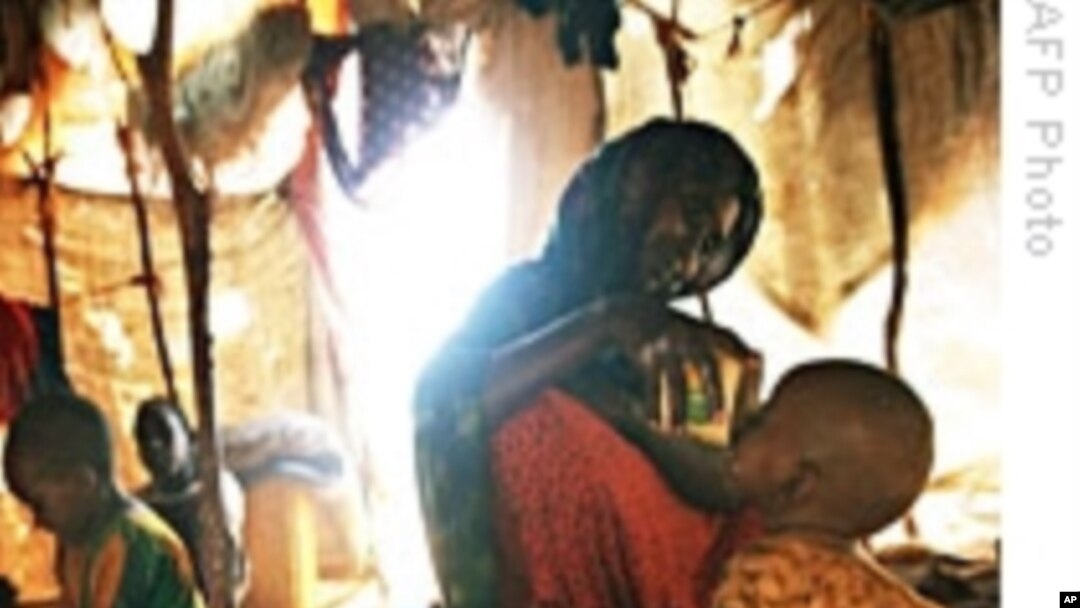<!-- IMAGE -->
A top human-rights official for the United Nations says the international community is failing in its duty to internally displaced persons in Somalia. More than 1.5 million people in Somalia are believed to be IDPs.
The Representative of the U.N. Secretary General on the Human Rights of Internally Displaced Persons, Walter Kalin, is concluding a week-long visit to the region focused on the plight of Somali IDPs.
The U.N. official issued a plea to the rest of the world to redouble its efforts to assist those forced from their homes in Somalia.
"The international community to a large extent fails the internally displaced persons in Somalia," he said.
Hordes of Somalis are fleeing the fighting in central and southern Somalia, where anti-government forces are trying to topple the Western-backed Mogadishu government. Much of the country is controlled by the rebel forces.
An area outside Mogadishu, known as the Afgooye corridor, contains the highest density of IDPs in the world.
Though Kalin did not visit southern and central Somalia due to security reasons, he met with those who have fled the area. They described the widespread violence against civilians and the harsh conditions of the IDP camps there.
Kalin accused all sides of the conflict of committing atrocities against civilians and of violating international law.
<!-- IMAGE -->
The U.N. official said the humanitarian conditions in the makeshift camps, many of which are inaccessible to international aid groups, are "unacceptable." He said the camps lack basic services such as food and water, adequate shelter and simple health care, and cited rampant sexual violence against women and girls.
The United States has announced it is withholding about $50 million in aid shipments to Somalia as it seeks more secure methods of delivering the assistance. Authorities are concerned that some of the aid is falling into the hands of the al-Qaida-linked militant group al-Shabab, which would violate U.S. anti-terrorism laws.
While Kalin acknowledged the risk that some aid into rebel-controlled territory could pass into undesired hands, he said suspending humanitarian aid is the wrong response.
"I think there is some risk, but it should not be taken as a reason to reduce humanitarian assistance, because it would not only mean that the most vulnerable would be punished. It also would play into the hands of radical elements that could exploit such a situation," Kalin said.
The U.N. representative also called for aid agencies based in Nairobi to move their Somali operations headquarters to the autonomous northern Somali regions of Somaliland and Puntland to be less removed from the deteriorating situation.
Many Somalis have also fled across the borders into neighboring countries, creating a substantial burden for countries such as Kenya and Ethiopia, which are forced to host the refugee camps.
A conference in Uganda this week is seeking to create new legally binding rights for IDPs, which currently receive less legal recognition than refugees.
Flash floods caused by El Niño-related rains washed out a number of IDP camps around the Mogadishu area this past week, reportedly affecting thousands of those already displaced from their homes. Much of central and southern Somalia has been suffering under an intense drought.


